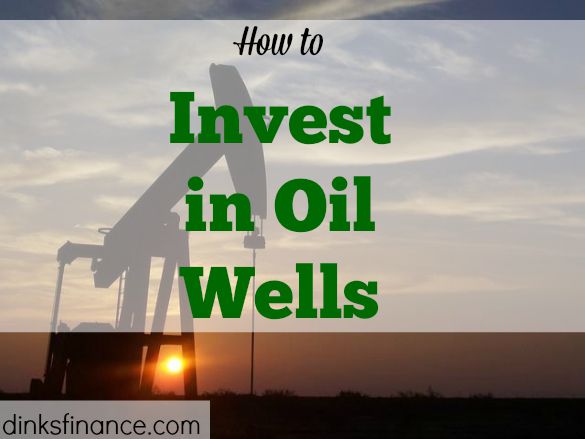For those of you hungry to learn how to make money by directly investing in oil, this posting is for you. Actually the second in a series, this posting contains part 2 of an interview with Charlie Rushton, inspired by an original post that further piqued my interest in how to buy an oil well. Charlie, known as the “go to oil guy” is an oil and natural gas professional whose focus is on providing individual consulting and education services. He is a former restaurateur and has appeared in numerous webpages. Charlie demonstrates an infectious enthusiasm for introducing investors to the benefits of investing in the oil patch. He has been kind enough to answer a number of questions for us.
4) How can risk be managed when investing in oil?
I have learned not to get involved in any deal that is based on only one well. Even if it sounds and looks great. There are so many unknowns when dealing with a hole a mile down into the earths’ crust, that you need as much hedging as possible. Multiple wells, multiple leases, multiple pay zones is by far the safer avenue. A project that has several facets to it has a greater chance of success than a project that consists of one well in one formation.
A lot of the risk is minimized by doing your due diligence, and investing with companies that have a good track record. Ask to speak to some of their other investors. There is a reason why these investments are not advertised to the public. People get to hear of them through fellow investors or business acquaintances. Always vet where you heard about these deals. Cold calling and solicitation is illegal.
Promoters abound in this industry. Always look for the operator who has skin in the game. The more the better, as he is the one managing the asset. With skin in the game he stands to benefit from the fruits of his labor and is thus committed to the operating being successful.
5) How does oil well investing make money? Do investors get paid when the oil is sold or are there other ways the wells make money?
The main source of income in wells is derived from the sale of the oil. By owning a % share of a particular lease or well, you are paid that % less the operating costs each time a load (180barrels) of oil is sold from that well. This can result in monthly, quarterly or six monthly checks, depending on its production. This continues until the life of the well is exhausted, and subsequently plugged and abandoned.
Aside from this there are other businesses that can make money. One example of this is ‘Skim Oil’. ‘Skim Oil’ is the oil that is skimmed from the water that comes out of the well. Commercial salt water disposal wells receive and dispose of the production water from the nearby wells. They collect and sell the skim oil after accumulating enough for pick up. This is a service to the operator and can be a very lucrative side business.
6) What are the tax considerations of investing in oil?
The main tax benefits are realized when drilling new wells. Fully 75-80% of the initial investment can be written off in the year the money was invested through something called Intangible Drilling Costs (IDC). The other 20-25% can be written down over a 5-7 year period through depreciation – these are the Tangible Drilling Costs (TDC).
The tax code specifies that a working interest (as opposed to a royalty interest) in an oil and gas well is not considered to be a passive activity. This means that all net losses are active income incurred in conjunction with well-head production and can be offset against other forms of income, such as wages, interest, capital gains, etc.
However, whether you invest in a new drilling project or a rework project, the depletion allowance – which is currently 15% – is enjoyed by all investors. This is 15% tax free from the gross oil production income from all wells.

Oil and gas investments are definitely not for everyone, although I think a balanced portfolio should contain some exposure to the energy sector, I do believe there is something for most people. Unquestionably it is an arena for investors with an appetite for risk. However, with the current boom in the oil and gas sector and the US’s drive to become self sustaining in producing energy, there are many safe and rewarding investments that would suit those with a more conservative approach. These would be programs with established production where much of the risk has already been taken. They might cost a little more, and rightly so, but you can still have a nice monthly cash flow for many years to come.
While the returns can be very tantalizing, investing in oil is not a get rich quick investment. More often than not your money is tied up for several months at a time before work actually starts and then it can be another 3 months before the potential of any payout. For example, I am invested in one project that has yet to pay out 18 months later, so patience is definitely a necessity.
There is a thrill to being on location and seeing an oil well come in and all the nail-biting and waiting pay off.
So here is my bottom line: my first question in any project is “if the odds are 50/50, am I willing to lose the money invested?” Going into these investments with your eyes wide open is a must.
Thanks,
Charlie Rushton
Folks, if you want learn more about about Charlie or want more information on investing in oil wells, he can be contacted at: (805) 403-7080 or via email: contact@Hardrockoil.com. Charlies website is: http://usoilinvestment.com. Finally, if you want more from Charlie, check part 1 of our interview here.




What a great interview! As an oil & gas geek myself (worked in the industry for 10 years) I enjoy reading other industry professionals’s perspective and tips. In the past decade since I’ve been in the biz, oil wells have always been a lot more profitable than gas wells, but like Charlie mentions, they are quite a bit more risky than normal investments.
Here in Texas, there’s no shortage of oil & gas. I’ve seen several oil wells come in great, then taper off after a year or two, while other wells are still going strong to this day – the bread and butter wells.
For me, I prefer to stay out of the working interest side of investing in oil wells and only purchase royalty interest from owners who are willing to sell. Most of which are fractional interests divided over multiple generations. This helps to consolidate (and therefore simplify and clean up) the title, and I get a little bit of passive income every month.